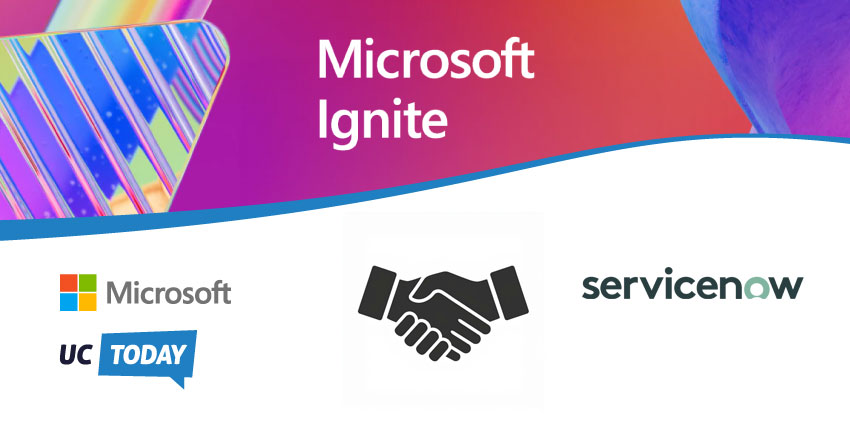Microsoft and ServiceNow have teamed up to enhance and automate more business processes that cross their enterprise applications.
To do so, the enterprise tech giants will expand on the integration of Microsoft Copilot and ServiceNow Now Assist, announced earlier this year.
With that announcement, the vendors unveiled several initial use cases for automating cross-platform workflows. Now, they’ve pledged to go further.
Yet, to consider how they may do so, let’s first reflect on some of those initial use cases, as showcased during this week’s Microsoft Ignite.
Employees can kickstart many through Microsoft Teams.
For instance, Teams users may utilize Copilot to search the ServiceNow knowledge base and retrieve information without leaving the UC platform.
From there, users may proliferate that knowledge across the business.
Additionally, employees working in Teams can converse with Copilot to request ServiceNow Catalog items – such as service and product offerings – and accelerate service delivery.
Finally, users can leverage Copilot to uncover the status of a customer case stored within ServiceNow and escalate it.
So, what comes next? Interestingly, both vendors mentioned agentic AI. As such, some of the new cross-platform automations may not require a human-in-the-loop; they could run automatically.
More interestingly, however, is the idea that employees could soon leverage Teams and Copilot to instruct AI Agents to not just gather insight but also perform actions within ServiceNow.
Microsoft or ServiceNow hint at this, noting how their virtual assistants can help orchestrate new cross-platform workflows.
“With Copilot as the user interface for AI, we’re ushering in a new ecosystem of AI agents that allow for increased interoperability with partners like ServiceNow,” said Charles Lamanna, Corporate Vice President of Business & Industry Copilot at Microsoft.
Our strong partnership and shared vision with ServiceNow provides an opportunity to help customers transform their business processes with Copilot and agents.
As part of that vision, Microsoft Teams may become the operational center point for front-office teams that select ServiceNow as their chief customer and employee experience platform.
Yet, it may not be the only option for ServiceNow customers compelled by such a vision. Indeed, the vendor has also partnered with Microsoft’s UCaaS rival Zoom to integrate their virtual assistants and automate cross-platform workflows.
In establishing these partnerships with stalwart UCaaS providers and co-innovating with them on agentic AI, ServiceNow can go further to compete with its chief CRM rival, Salesforce.
Just consider what Salesforce is doing with Agentforce. It’s creating AI Agents that share case updates with, surface insights for, and recommend actions to employees via Slack after searching Salesforce CRM apps.
If ServiceNow can build a similar ecosystem with Slack’s rivals, it can offer comparable capabilities to its customers without making them switch collaborations platforms.
Of course, this is perhaps jumping ahead a few steps. Nevertheless, Jon Sigler, SVP of Platform and AI at ServiceNow, reinforced the partnership’s ambitions.
“By combining our strengths, we’re enabling organizations to harness AI and automation in ways that fundamentally change how they work—reducing complexity, driving productivity, and helping teams move faster,” he said.
This partnership isn’t just about technology; it’s about setting customers up for long-term success in a digital world.
Finally, it’s critical to note that the possibility of agentic AI running cross-platform workflows between ServiceNow and Microsoft extends far beyond Microsoft Teams and ServiceNow CSM.
Nevertheless, the announcement offers much food for thought as to the UC platform of tomorrow.
Eager to learn more about Microsoft’s agentic AI mission? If so, check out CX Today’s article: Microsoft’s Autonomous Agents Are Now Available In Public Preview







